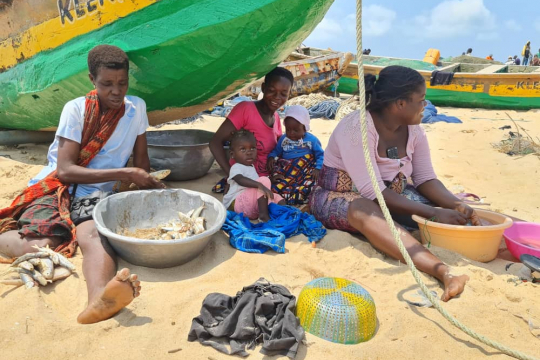In low-income food-deficit coastal countries, fish forms a critical source of animal protein. Yet, capture fisheries, which provide fish protein to the local populations, are typically overcapitalized and exhibit classical signs of biological overfishing, threatening the livelihoods of communities. With the high and increasing fishing pressure, the rate of stock depletion may continue to intensify, thereby tilting households’ preferences towards consumption of other types of animal protein depending on whether (or not) they have strong preferences for those types of protein. This, however, may have implications for the environment as the
different types of protein have different environmental footprints. By employing a variant of the Suits Index (1977) and an Almost Ideal Demand Systems (AIDS) model, we found strong evidence that wealthier households in Ghana spend a lesser proportion of their protein budget on fish than their poorer counterparts. In addition, the other types of animal protein, except chicken, serve as substitutes for fish.
Fish Protein Transition in a Coastal Developing Country
EfD Authors
Country
Sustainable Development Goals
Publication reference
Akpalu, W., Okyere, M.A. Fish Protein Transition in a Coastal Developing Country. Environ Resource Econ 84, 825–843 (2023). https://doi.org/10.1007/s10640-022-00669-y

